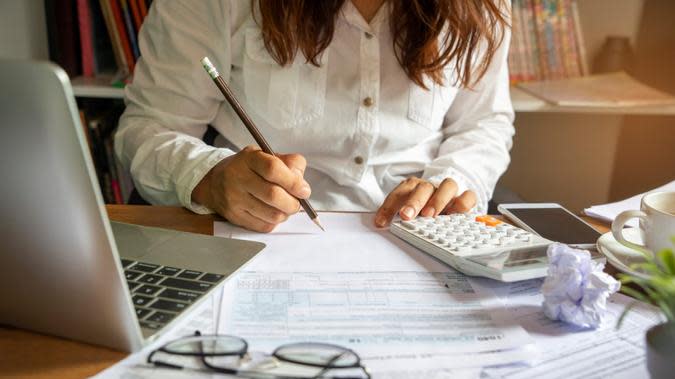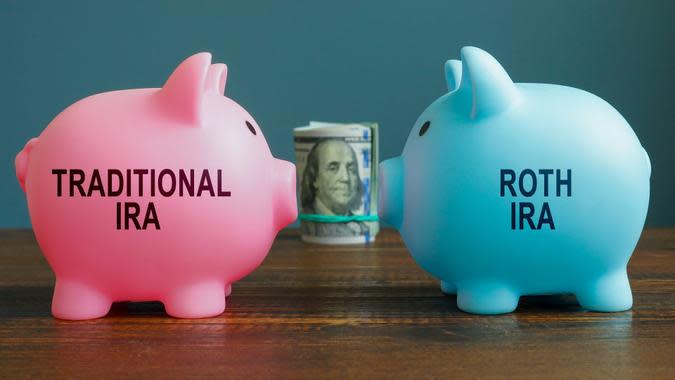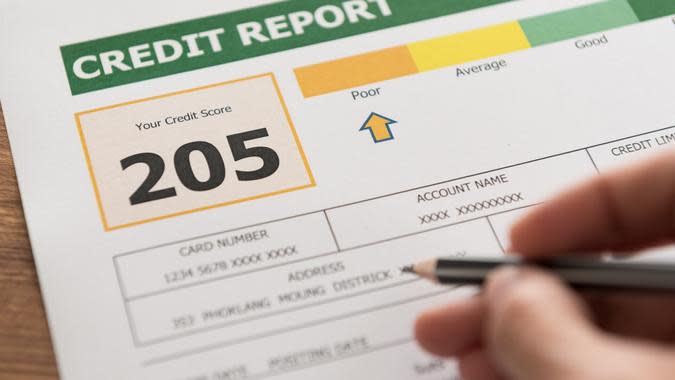6 Signs You Can’t Afford To Buy a House
Buying a home can help provide a stable future for you and your family, but it can also cause financial uncertainty. In most cases, it is the largest and most important purchase that you will make.
Find Out: 9 Bills You Should Never Put on Autopay
See: Unplug These Appliances That Hike Up Your Electricity Bill
Ultimately buying a home is a long-term investment that requires an in-depth understanding of your income, debt and potential expenses. Failing to take into account the big picture can have a devastating financial impact down the road. Find out the signs that should make you think twice before buying a house.

You Do Not Have a Steady Paycheck
One of the most important considerations when buying a home is whether you have steady income. Buying a house may not be the best option if your paycheck fluctuates significantly each month or year to year. Purchasing a property is about the long game. In most cases, you are signing a 15- or 30-year fixed-rate mortgage, meaning your payments are not going to go down unless you are able to take advantage of lower interest rates and refinance. If you are uncertain whether your income will remain at its current level for the foreseeable future, you may want to think twice about tying your money up in real estate. Never count on income that is not guaranteed, and remember, just because you can afford a mortgage now does not mean that you will be able to later. See: 6 Alternative Investments To Consider for Diversification in 2022

It Is a Large Portion of Your Monthly Income
It is a red flag if your mortgage payment will consume a large portion of your paycheck. A good rule of thumb is that your mortgage payment should not exceed 30% of your gross monthly income. Anything over could make it difficult for you to afford other living expenses. It is essential to know that in addition to your mortgage payment, you will have other costs, including property taxes, insurance, utilities, association fees and maintenance. You need to factor in all the potential expenses related to your home and ensure that you make enough to cover them.

You Don't Have Savings
A warning sign that you may not be able to afford a house is if you don't have a rainy day fund. It can be tempting to empty out your savings in order to buy a home, but what happens if you lose your job or an unexpected expense comes up? Depleting your savings to buy a house may do more harm than good. If you don't have a cushion, are living paycheck to paycheck or can only make the minimum payments on your credit cards, you should consider evaluating your financial situation before taking the leap into homeownership.

You Can't Afford the Down Payment
One of the biggest obstacles for first-time homeowners is coming up with the down payment. Depending on the loan, you may need to come up with 10%-20% of the purchase price. While there are assistance programs available, it may be worth taking a second look at a lower-priced home. Putting more money down can help reduce your monthly payments, saving you thousands of dollars over the course of the loan, but you need to be able to come up with the money first. If you cannot put 20% down, you may have to purchase private mortgage insurance (PMI). PMI protects the lender if you are unable to make your mortgage payments on a conventional loan and can add significantly to your expenses.

You Are Taking From Your Retirement Account
Early withdrawals from your retirement account are heavily discouraged. The Internal Revenue Service notes that there is an additional 10% tax on early distributions (before reaching 59 ½ years of age) taken from a traditional or Roth IRA.One of the few exceptions to this rule is if the money is used in a qualified first-time home purchase. While the exception exists, using it might not be the best idea. Retirement accounts are designed to prepare you for the future. Dipping into the account early may put you in a difficult financial position down the road. Taking from your retirement account for a down payment on a house should be a last resort and may be a strong indication that you cannot afford to buy the house.

You Don't Have Good Credit
Finally, good credit goes a long way. A high credit score can help you obtain favorable terms on your loan, making your monthly payments more manageable. A low credit score can have the opposite effect. If you don't have good credit, take some time to get your affairs in order. Look at your debt-to-income ratio, unsecured debt and credit limits. Try to pay off high-interest credit cards and get payments in on time. Late or missed payments can heavily influence your credit rating. A low credit score means you are a higher risk to a lender, which can result in a higher interest rate. Bottom line: Stay within your budget, focus on improving your credit and make sure that you are financially stable before buying a home. More From GOBankingRates10 Best Countries To Live on Just a Social Security Check
Top 10 Richest People in the World
Take These 6 Key Steps Today To Retire a Millionaire
How To Find Travel Insurance That Covers COVID-19 Cancellations
This article originally appeared on GOBankingRates.com: 6 Signs You Can’t Afford To Buy a House
